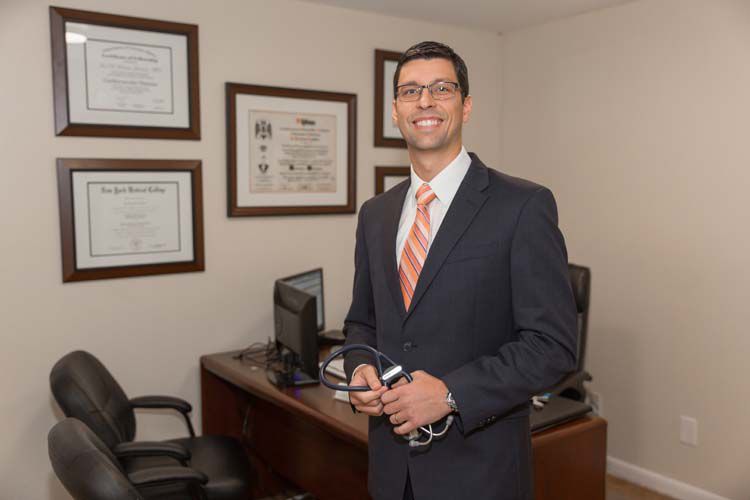
What’s the best way to avoid the massive personal and emotional traumas – let alone the huge financial costs – that come with a heart attack?
Easy – don’t have one.
That, in a nutshell, is the message Dr. Jose Rivera, a new cardiologist at the Sebastian River Medical Center, is trying to get across.
And, while not having a myocardial infarction – or heart attack – may seem like painfully obvious advice, Rivera says a relatively new, “evidence-based” algorithm is now available to help physicians spot and treat the most common cause of these potentially fatal cardiac events: coronary artery disease, or CAD.
“The most preventable form of cardiovascular disease,” Rivera states flatly, “is coronary artery disease.” And preventing CAD helps prevent heart attacks.
Rivera continues by saying that both the American Heart Association and the American College of Cardiology enthusiastically endorse the use of the something called the “atherosclerotic cardiovascular disease risk calculator” to determine the likelihood of anyone between the ages of 20 and 59 experiencing a coronary crisis over a 10-year period.
By combining information about a patient’s age, sex, blood pressure (both systolic and diastolic), levels of both high density lipoproteins (HDLs) and low density lipoproteins (LDLs) as well as several other factors into what is essentially a mathematical equation, doctors are now able to get remarkably accurate risk projections and recommend preventive treatments much earlier than was previously possible, according to Rivera.
CAD is the narrowing or blocking of arteries leading to the heart. It is caused by the buildup of cholesterol and fatty plaque deposits along the inner walls of those vessels. If that plaque restricts or blocks the flow of blood to the heart, a heart attack can occur.
The Centers for Disease Control says more than 715,000 people in the United States will have a heart attack this year brought on by CAD – one every 44 seconds.
And while it might not seem possible to put a price tag on the physical and emotional trauma that a heart attack can bring – if it doesn’t kill you – plenty of people try.
For example, in 2010, the National Business Group on Health estimated the average cost – both direct and indirect – of a severe heart attack can be well over $750,000. (Direct costs, says NBGH, include hospitals, doctors and prescription drugs, while indirect costs can include lost productivity, time away from work and skilled post-operative nursing care.)
Meanwhile, in September of this year, the National Bureau of Economic Research estimated that cardiovascular disease in general and heart attacks in particular cost the United States between $110 billion and $123 billion annually.
The out-of-pocket cost to heart attack patients can also vary wildly depending on where that patient lives.
The insurance company AFLAC says the average bill for treatment for a heart attack in, say, Danville, Ark., is about $3,334, but in Modesto, Calif., the same procedures carry an average price tag of $92,057.
The website FloridaHealthFinder.gov claims the hospital cost for a heart attack here in Florida can range anywhere from $25,236 to $63,900 and up.
Rivera is adamant that behavioral changes and the early use of statin drugs can keep hearts beating “healthily” much, much longer.
“Up to 80 percent of cardiovascular diseases,” and CAD in particular, Rivera says, “can be prevented.” He cites diet, exercise, lipoprotein control, not smoking, maintaining healthy glucose or blood sugar levels along with a healthy weight as remedies that can be applied if CAD is discovered early.
Those things, says Rivera, can do more to help patients avoid unplanned trips to the cardiology ER than anything else.
“Statins,” Rivera leans forward to say, “have been shown to decrease your cholesterol by more than 30 percent.” Indeed, statins have been clinically proven to help reduce or even eliminate plaque within the arteries. They are the proverbial apple-a-day-that-keeps-the-cardiac-surgeon-away for hundreds of thousands of people nationwide.
The ASCV risk calculator can be viewed online at http://tools.acc.org/ASCVD-Risk-Estimator/ but the medical analysis of the results, as well as designing a program of preventive care, should be left to a board-certified cardiologist such as Rivera.
Dr. Jose Rivera is with Sebastian River Medical Center. His office is at 7754 Bay Street, Suites 6 & 7 (next to Bay Street Pharmacy) in Sebastian. The phone number is 772-589-3000.



